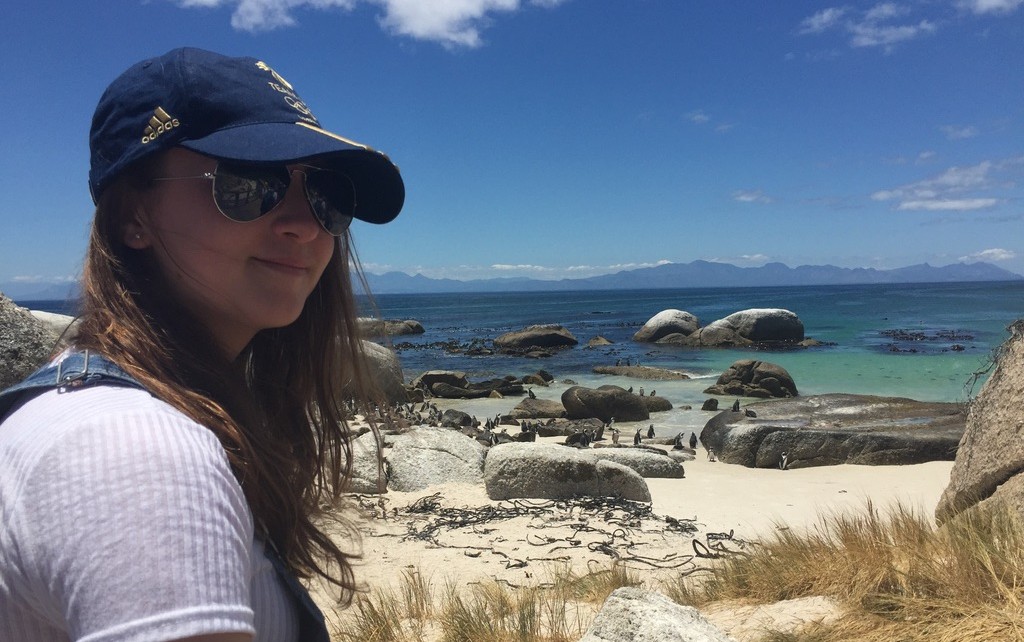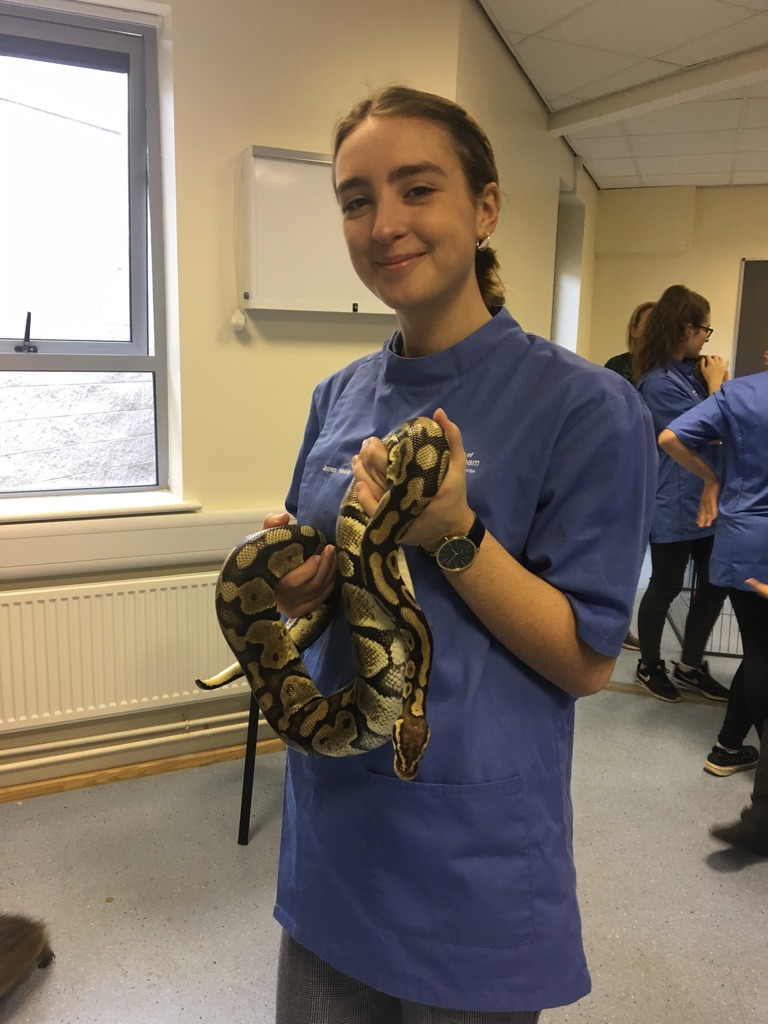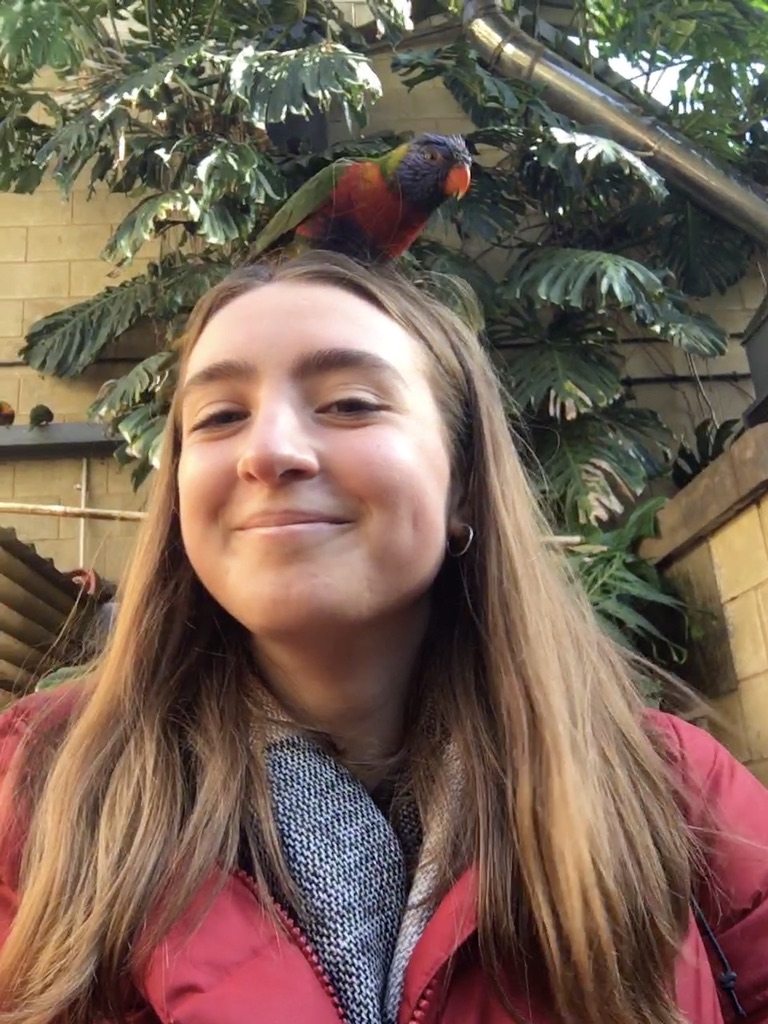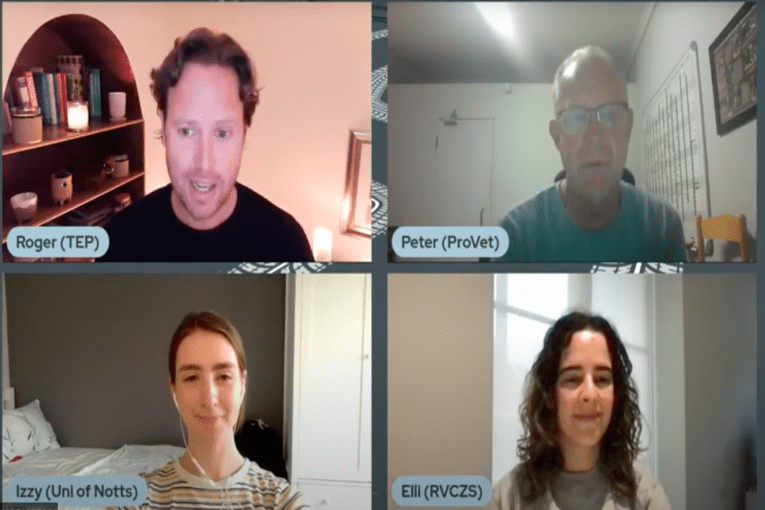Staff Interview with Isabel Hannah Beardwood
Get to know The Expedition Project's staff!

Isabel Hannah Beardwood is currently in her final year of veterinary studies at The University of Nottingham. She has been an ambassador for The Expedition Project for three years and loves promoting ethical tourism and forward thinking in terms of conservation of species out in South Africa.
What inspired you to work for The Expedition Project?
An opportunity presented itself via our university wildlife society, and I loved their focus on forward thinking conservation and ethical tourism. I think that The Expedition Project really goes out of their way to promote the wellbeing of the environment and ethical working.
Furthermore, Roger is very supportive and encourages us to get the most out of our roles without pushing us too hard and asking too much of us at any given moment.
Describe a typical day at work.
It is very flexible so we do what we can, when we can—you can pace yourself for whatever suits you! We are generally given jobs that coincide with our interests and passions. For example, I have been a conference organizer for a few years now.
The role varies—sometimes you are chairing talks and other times you are helping to develop courses and edit courses behind the scenes.
What is your favorite part of your job?
Meeting a wide range of people from a wide range of fields and backgrounds who are all so passionate about their work!
Also, trying to promote longevity of species and changing the outlook on tourism in order to create a more sustainable space for people to travel.
Finally, developing life skills that will assist me in the future: organization, people management, and chatting to people in many fields, etc.

Boulders beach penguin colony- South Africa!
What challenges do you often face and how do you overcome them?
I think that as a lot of our volunteers are veterinary students, there are many times where some of us are busy and others aren't, and we can struggle to fit certain tasks in on a week to week basis.
Through good communication, most of the time we are able to overcome this as people will pick up other people's jobs if they have time, and others will return the favor in the future. There is a good culture of helping each other out when we can!
I think that since none of us have experience in content promotion and creation as well, it has been a process to make strides in this. However, we have done our best to learn on the job and learn something new every week!
What advice would you tell your pre-travel self?
I think I would tell myself to travel to as many places as possible and not be deterred from any countries or areas of the world, as there are so many opportunities in so many countries.
I think exploring your own country and the things it has to offer is also an amazing thing to do—a concept that has definitely been encouraged during Covid. Even though travel is an investment, if you are passionate about it, it can be included as part of your expenses (you can budget for it). Be sure to treat yourself as the memories are worth it!
Before you go anywhere, take a good look at the culture and some key things about that country so that you are sure to fully experience it. Also, learn a few key phrases to get you around—we can forget that although English is very widely spoken, not every person you speak to will always understand you.

Snake Handling!
Why should someone choose The Expedition Project over competitors?
Our organization promotes ethical tourism. Lots of work has gone into fully researching and vetting each company involved so that we can be certain that they are committed to sustainable tourism and conservation.
To me, this is really important, as there are so many environmental concerns right now and we need to learn to safeguard our planet. Lots of other organizations, in my opinion, aren't doing a good enough job at safeguarding.
Furthermore, from a veterinary perspective, we have access to amazing research—Dr Peter Rogers, one of the best wildlife vets in the world, has a wealth of knowledge that is being put into amazing courses—due to the nature of wildlife vetting, a lot of this stuff hasn't been written down yet!
Finally, the organizations and their conservation message comes first overall to our founder. He goes out of his way in order to ensure that this organization has sufficient support in terms of donations and spreading their conservation message.
What hopes do you have for the future for your organization?
As a small organization, I hope that we are able to get more people involved in our courses and our expeditions.
During Covid, for obvious reasons, we could not get people out to South Africa on trips, so it has been amazing to see people start to go back out and experience some of the things the country and the amazing organizations involved have to offer.
Furthermore, the more people that go on trips and take our courses, the more feedback we can generate, and the more developments we can make to our trips and courses.
What makes your organization easy to market to potential participants?
Our courses are organized in a way that they can appeal to certain groups of people easily. For example, all of our information about veterinary courses and expeditions is in one place.
Furthermore, I think our ethical and sustainable message will appeal to lots of people. If people are interested in wildlife and conservation and social enterprises, then they should be interested in these topics.
We have pioneered a new trip planner that incorporates the affiliated organizations into a map of the country. It can create a route for you to enjoy all of these places, which I think is really innovative and interesting!

Parakeet landing!
What is your organization's mission and how do you continue to work toward it?
As mentioned previously, The Expedition Project supports social, environmental, and tourism projects that all have an ethical basis.
We also act as a platform to generate donations and support for these organizations, whether they be big or small. Finally, we want to inspire the next generation of vets, ecologists, zoologists, researchers, etc. to promote ethical and sustainable tourism and protect our environment.
What do you hope participants take away from your programs?
I hope they take away valuable teaching in wildlife conservation and rehabilitation methods, and the major skills and techniques involved in being a wildlife vet.
I also hope they take away a new outlook on conservation and ethical tourism—I had never considered things such as biomimicry before engaging with The Expedition Project. Finally, I hope they gain insights into many different industries and jobs out in South Africa.
If you could participate on one of your organization's programs, what would you do?
I would participate in Wildlife Vet Online (trip to South Africa—all of our trips are in South Africa!). I think that this is a really well developed course with the opportunity to explore many different facets of wildlife vetting, the good and the bad!
Furthermore, there is the opportunity to get involved with many amazing organizations out in South Africa and assist them with their work.
What questions do participants often ask you, and how do you typically respond?
Questions are often asked about getting memberships: we have many different membership structures in order to encompass lots of different backgrounds. We have a standard response in order to make it as easy as possible for people to find the right membership for them.
People also ask us questions about getting involved—we try to tailor these answers to the individual and their interests. Finally, sometimes people ask us about helping to get into their desired career path.

Lots of online livestreams over the COVID years!
Why is it important for people to travel abroad and experience new cultures?
Understanding new cultures allows us to diversify our outlooks, encourages us to be more empathetic and understanding of people, and removes stereotypes and assumptions that you may have had about a culture or community.
This can be really important in everyday life in any strain of work. It also allows us to enhance our communication techniques with people from all backgrounds.
What does meaningful travel mean to you?
Meaningful travel means encompassing things into your travels that are important to you as an individual—this is individual to everyone and their values.
Meaningful travel to me means immersing myself in a culture and feeling that I have really embraced the essence of a place. Furthermore, it means positively contributing to the local community and population, and not leaving a footprint.
What hopes do you have for the future of international education?
I hope that we will be able to have more collaboration between educational institutions globally. Everyone across the world has such different educational opportunities and teaching formats that it would be amazing to collaborate with different places in order to learn from different cultures and about different places in the world.
It could just benefit individuals as a different country’s teaching styles may suit an individual better—trialing different learning styles and methods in order to get the most out of education. Furthermore, having international connections broadens our horizons so much more and will encourage tolerance and open-mindedness.

